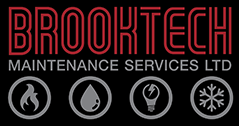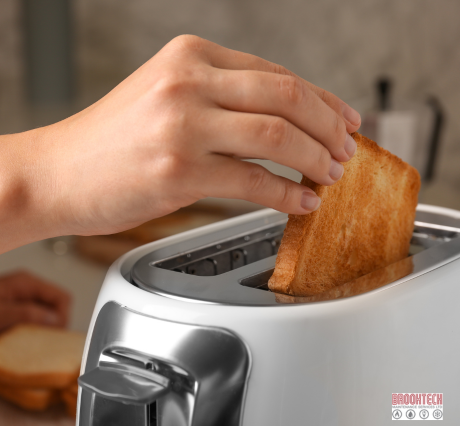The Importance of PAT Testing for Residential Homes: Ensuring Safety for Guests
Discover why PAT testing for residential homes is essential for guest safety, the risks of neglecting it, and how Brooktech can help you stay compliant.
PAT testing for residential homes is essential for the safety and well-being of your guests. Portable Appliance Testing (PAT) is the process of checking electrical appliances to ensure they are safe to use. In a residential home setting, where guests are often elderly or have health vulnerabilities, PAT testing is not just a best practice—it’s a necessity. In this blog, we will explore why PAT testing is crucial for residential homes, what risks are involved if it’s not done, and how Brooktech can help ensure your facility stays compliant and safe.
Why is PAT Testing for Residential Homes Important?
PAT testing for residential homes ensures that every electrical appliance within the care environment is functioning safely. These tests help prevent electrical faults that could lead to accidents like electric shocks or even fires. With guests relying on the residential home for their well-being, the consequences of faulty equipment could be devastating. Regular PAT testing can reduce these risks and help ensure the comfort and safety of your guests.
As a legal requirement under the Electricity at Work Regulations 1989, PAT testing for residential homes must be carried out routinely to ensure compliance with safety standards.
What Happens if PAT Testing is Neglected?
Neglecting PAT testing in residential homes can have severe consequences. Without regular testing, faulty electrical appliances can go unnoticed, leading to dangerous accidents, including:
- Electrical Shocks: Faulty appliances are a common cause of electric shocks, especially if wiring or insulation deteriorates over time.
- Fires: One of the biggest risks of untested electrical equipment is fire. Older appliances, especially in high-use areas, can overheat or short-circuit, causing fires that spread quickly through a property.
- Legal and Financial Consequences: Failing to carry out PAT testing for residential homes may result in legal penalties. Additionally, insurance companies may refuse to pay claims if they discover that untested electrical appliances contributed to an incident.
The consequences of neglecting PAT testing are not just financial. The health and safety of your guests are at risk. For those with limited mobility or health issues, the ability to respond quickly to accidents is also diminished, making fire safety and electrical integrity even more critical.
What Risks are Involved Without PAT Testing?
The risks associated with failing to conduct PAT testing for residential homes can be substantial. Common issues that arise when appliances are not regularly checked include:
- Frayed Cables and Worn Wires: These are early indicators of potentially serious problems. If unnoticed, these faults can result in electrical shocks or fires.
- Overheating Devices: Unchecked electrical appliances may overheat, leading to damage and fire risk.
- Water and Electrical Faults: In a residential home, appliances such as kettles or washing machines may suffer water damage, which increases the risk of electric shock.
By ensuring that all electrical equipment is regularly tested, you can prevent these risks from materialising and protect your guests.
How PAT Testing for Residential Homes Prevents Hazards
Implementing a regular schedule for PAT testing helps identify electrical issues early. This proactive approach means small problems can be fixed before they turn into major safety risks. Here’s how PAT testing for residential homes can prevent hazards:
- Early Detection: Regular PAT testing will identify faulty wiring, damaged cables, and other issues before they escalate.
- Improved Equipment Lifespan: Fixing small issues early will prolong the life of your electrical appliances, ensuring they remain safe to use for longer.
- Compliance with Regulations: Staying compliant with the Electricity at Work Regulations 1989 ensures that your residential home avoids legal action or insurance claim rejections.
What Should You Look for in PAT Testing for Residential Homes?
When scheduling PAT testing for residential homes, it’s important to prioritise high-risk areas and frequently used appliances. Some equipment that should receive particular attention includes:
- Kettles and Toasters: These appliances are commonly used and can deteriorate quickly, making them high-risk.
- Heating Devices: Space heaters and portable radiators can pose serious risks if they are not regularly tested.
- Washing Machines and Dryers: Appliances that use both water and electricity need regular inspections to ensure they remain safe.
How Brooktech Can Help
At Brooktech, we understand the unique needs of residential homes and how vital it is to keep guests safe. Our PAT testing services are designed to minimise disruption to your daily operations while ensuring that every appliance meets safety standards.
- Comprehensive PAT Testing: We cover all your appliances, ensuring they meet the necessary safety regulations and that your residential home is fully compliant with the law.
- Minimal Disruption: Our team works discreetly and efficiently, ensuring that testing is conducted with minimal impact on the daily lives of your guests.
- Detailed Reports: After each inspection, we provide full documentation of the testing and any recommendations for repairs or replacements. This ensures that you have a clear understanding of the condition of your appliances.
Get PAT Testing Done Before It’s Too Late
Ensuring the safety of your guests should always be the top priority, and PAT testing for residential homes is a crucial part of maintaining that safety. Failing to test electrical appliances puts your guests at risk of electric shocks, fires, and legal penalties. By scheduling regular PAT testing for residential homes, you can prevent accidents, extend the lifespan of your appliances, and stay compliant with safety regulations.
Contact Brooktech to ensure your residential home is fully protected. Our expert team will ensure that your appliances are safe, compliant, and ready to serve your guests safely.









